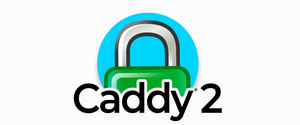Caddy is a powerful, extensible platform to serve your sites, services, and apps, written in Go.
Installation
Debian, Ubuntu, Raspbian
sudo apt install -y debian-keyring debian-archive-keyring apt-transport-https
curl -1sLf 'https://dl.cloudsmith.io/public/caddy/stable/gpg.key' | sudo gpg --dearmor -o /usr/share/keyrings/caddy-stable-archive-keyring.gpg
curl -1sLf 'https://dl.cloudsmith.io/public/caddy/stable/debian.deb.txt' | sudo tee /etc/apt/sources.list.d/caddy-stable.list
sudo apt update
sudo apt install caddyCreate Caddy Service
sudo systemctl enable caddyEdit CaddyFile
sudo vim /etc/caddy/CaddyfileAdd the Below lines to Caddyfile Config
example.com {
reverse_proxy localhost:5000
}example.com with your actual domain name.Set your domain's A/AAAA records to point to your server. You can do this by logging into your DNS provider and managing your domain name.
Before continuing, verify the correct records with an authoritative lookup. Replace example.com with your domain name, and if you are using IPv6 replaces type=A with type=AAAA:
curl "https://cloudflare-dns.com/dns-query?name=example.com&type=A" \
-H "accept: application/dns-json"Also, make sure your server is externally reachable on ports 80 and 443 from a public interface.
Start Caddy Server
Then from the same directory, run:
sudo caddy stop
sudo caddy startYou can use caddy reload to reload the config live.
You will see Caddy provision a TLS certificate and serve your site over HTTPS. This was possible because your site's address in the Caddyfile contained a domain name.
For More Information visit caddyserver.com

